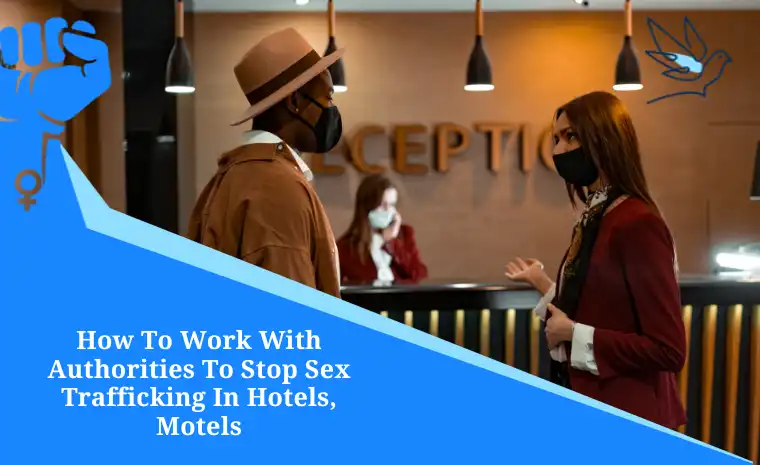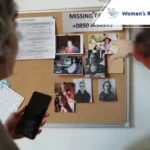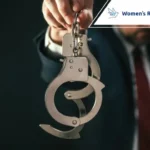Human trafficking is a violation of human rights and is often referred to as modern slavery. It involves exploiting and manipulating individuals for forced labor such as housekeeping and construction, or even more traumatic forms like sex trafficking and prostitution.
In the United States, the rise of sexual exploitation has primarily impacted females and children working in commercial establishments. According to the Polaris Project report, 4,651 out of 32,208 cases studied were related to escort services in the hotel industry.
Victim of sex trafficking? We can help.
To fight human trafficking and protect human trafficking victims from sexual exploitation in commercial establishments such as hotels and motels, owners must take responsibility and create training policies for their staff members, including how to work with law enforcement officers.
In this blog, we will discuss how motel/ hotel owners can join the fight against human trafficking.
- What are the red flags of human trafficking?
- Signs of human trafficking in hotels/motels
- Human trafficking training for hotel/motel staff

What are the red flags of human trafficking?
Human trafficking affects individuals regardless of age, gender, race, religion, socioeconomic status, or educational level. Human traffickers often target vulnerable people who are experiencing psychological or emotional distress, or those who have been subject to economic hardship and lack access to a social safety net.
Victims may not seek help due to language barriers, fear of retribution from their traffickers, and/or apprehension by law enforcement.
Some warning signs of human trafficking include:
- The person appears to be controlled or heavily influenced by someone else.
- They are not in control of their own identification documents or money.
- Physical abuse and/or torture may be present.
- Signs of malnutrition, dehydration, and general lack of medical care or hygiene are noticeable.
- Possible signs of sexual violence may also indicate the possibility of human trafficking, especially if they are repeatedly victimized.
Signs of Human Trafficking in Hotels/Motels
Sex trafficking is one of the main problems the hospitality industry is dealing with in the United States. In 2022, the National Human Trafficking Hotline received 17,041 reports of human trafficking, with 6,470 of those cases involving sex trafficking.
It’s important to note that these statistics only represent reported cases, and the actual number of victims of sex trafficking in commercial establishments is likely much higher.
California’s law states that business owners and hospitality staff may be held liable for sex crimes if they are aware that such illegal activities are taking place on their premises and fail to report it to law enforcement agencies.
In order to avoid sex trafficking crime in their establishments, hospitality industry owners need to train their staff in how to spot human trafficking in hotels and/or motels.
How to Spot Victims
There are several signs that hotel staff should be aware of when it comes to identifying potential victims of sex trafficking. Some of the principal signs of sex trafficking in hotels include:
- The presence of many men coming and going from a room or series of rooms
- Individuals who appear to be living in the hotel for an extended period of time, without leaving the room or interacting with others
- Guests who refuse housekeeping or other services
- Individuals who are not allowed to speak for themselves or seem to be under the control of someone else
- Signs of physical abuse, such as bruises or other injuries
- A guest who appears to be fearful or anxious, and who avoids eye contact or interaction with others
- Guests who pay for rooms in cash or use pre-paid credit cards, which can be an indicator of attempts to avoid detection by law enforcement or other authorities
- A guest who seems to be traveling with a larger group, but who appears to be isolated or kept apart from others
- Guests who have a large age difference, particularly if one person appears to be much younger than the other and may be under 18 years of age
- Guests who seem to be engaging in commercial sex activities, or who are being forced to engage in such activities
How to Spot Traffickers
It can be difficult to identify sex traffickers in hotels, as they often attempt to blend in and avoid detection. However, there are some signs that hotel staff should be aware of when it comes to potential traffickers. Some of the principal signs of traffickers include:
- Someone who appears to be in control of one or more individuals, and who may be dictating their movements or behavior
- A guest who is paying for multiple rooms, but only seems to be using one or two of them
- Individuals who are hesitant to provide identification or who provide false or incomplete information
- Guests who appear to be monitoring or controlling the movements of others within the hotel
- Signs of abusive behavior or threats of violence toward individuals who may be under their control
- Guests who seem to be avoiding law enforcement or other authorities, or who become confrontational or defensive when questioned about their activities
- Someone who is paying for guests’ rooms in cash or with pre-paid credit cards, which can be an indicator of attempts to avoid detection by law enforcement or other authorities
- Guests who have a large age difference with the individuals under their control, particularly if one person appears to be much younger than the other and may be under 18 years of age
- Guests who may be recruiting or attempting to recruit others into the sex trade
It’s important to note that these signs do not necessarily indicate sex trafficking, but they should be viewed as potential red flags. Hotel staff should be trained to recognize these signs and to report any suspicious activity to law enforcement or other appropriate authorities.
Victim of sex trafficking?
Human Trafficking Training for Hotels/Motels
The hospitality industry continues to be a site of sex trafficking, and in recent years, there has been an increased focus on training hotel and motel employees to identify and report signs of trafficking. In 2022, the American Hotel & Lodging Association launched a new online training program called “No Room for Trafficking” that aims to educate hotel employees on how to recognize and respond to trafficking.
Human trafficking training for the hospitality industry is an essential step to prevent and stop sex trafficking in hotels. This type of training provides hotel and motel staff with the knowledge they need to identify, report, and prevent instances of human trafficking on their premises.
Here are some key elements that should be included in such training:
- Awareness of the problem: Hotel staff should be made aware of the prevalence of sex trafficking and the signs to look for in potential victims and traffickers.
- Legal obligations: Training should cover the legal obligations of hotel staff to report suspected trafficking activity to law enforcement or other authorities.
- Communication and collaboration: Staff should be trained on effective communication and collaboration with law enforcement and community partners, including victim service providers.
- Response protocols: Hotels should have clear protocols in place for responding to suspected trafficking activity, including reporting to law enforcement, protecting victims, and cooperating with investigations.
- Staff roles and responsibilities: Each training staff member should understand their role and responsibility in identifying and reporting suspected trafficking activity.
- Guest engagement: Staff should be trained on effective ways to engage with guests, including how to ask appropriate questions and detect potential signs of trafficking.
- Multilingual resources: Training should provide multilingual resources to ensure that all staff members are able to communicate with guests in their preferred language.
- Ongoing training: Human trafficking training should be ongoing and regularly updated to ensure that staff members are equipped with the most up-to-date information and skills.
By implementing human trafficking training for hotels/motels, businesses can play an important role in helping to eradicate this heinous crime from their communities.
Fight Sex Trafficking With Us
Women’s Rights Group is a non-government organization that provides support and empowerment to victims of sex trafficking. Through various outreach and advocacy initiatives, we help sex trafficking survivors obtain the compensation and justice they deserve for the suffering that they have endured.
We know how difficult and traumatic it can be for a sex trafficking victim to recreate the horrible moments in order to seek justice. That’s why we dedicate our work to creating a safe space and comprehensive environment where they can express themselves without the fear of being judged.
We are here for you 24/7. We speak English, Spanish, and Filipino.
Contact us for a free, confidential consultation.






